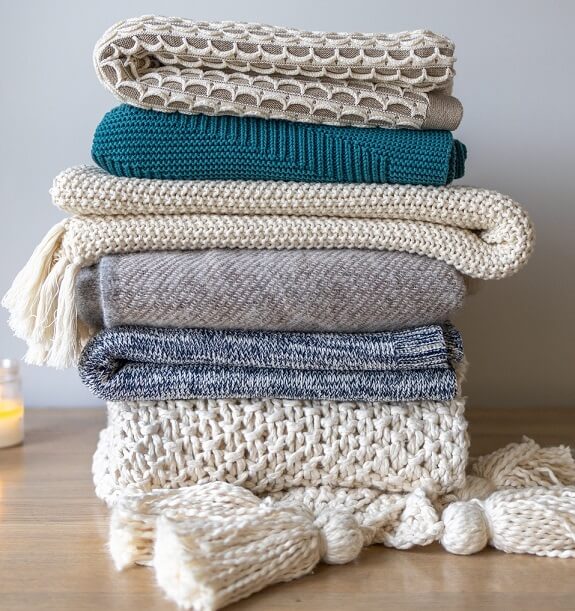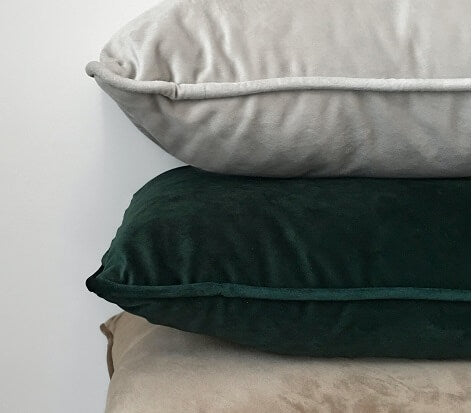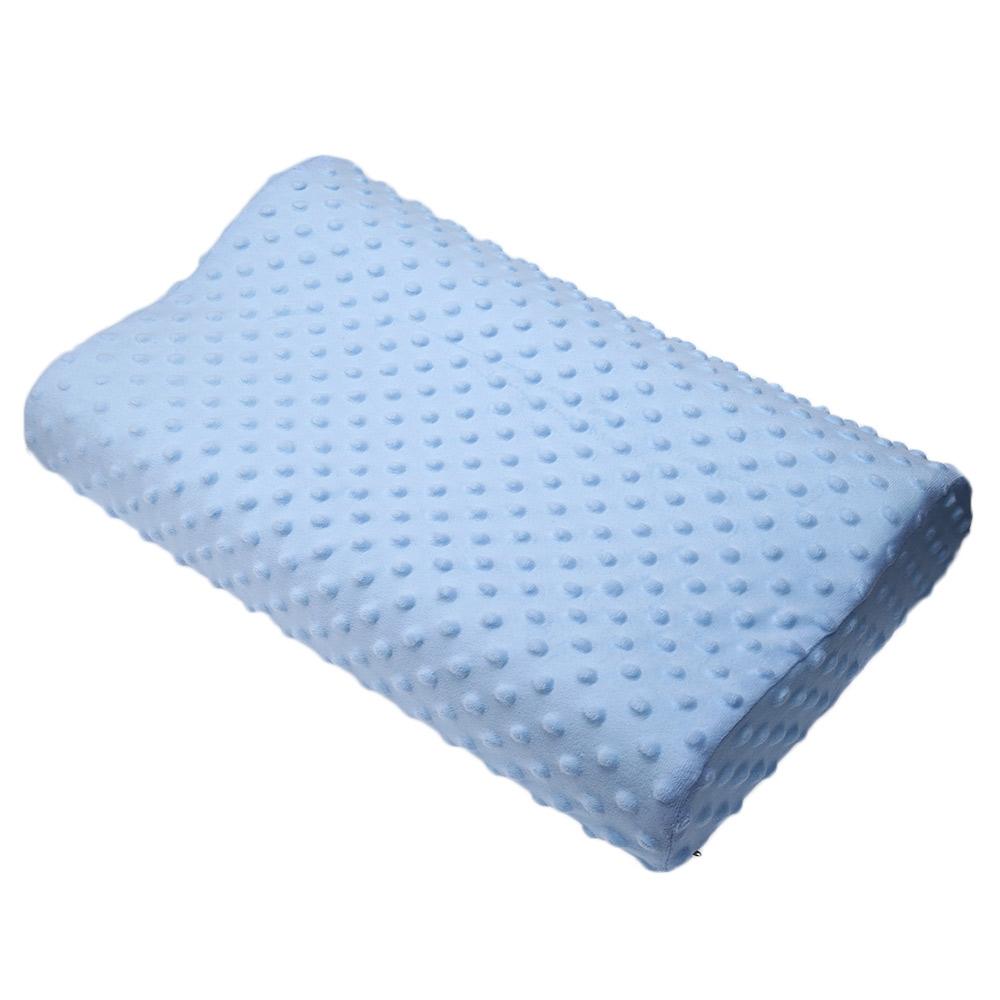Are you one of the many people who have fallen in love with the cozy and calming effects of the best weighted blankets for adultst? These blankets, filled with beads or pellets to add extra weight, have become increasingly popular for their ability to promote relaxation and improve sleep quality. However, with this rise in popularity comes the question: is it ok to use a weighted blanket every night? While they can certainly provide numerous benefits, it's important to consider if using one every night is the best choice for your health and well-being. Let's take a closer look at the potential risks and benefits of using a weighted blanket on a nightly basis.

What Exactly are Weighted Blankets?
So, what's all the fuss about weighted blankets? Well, picture your regular blanket. Now, imagine it filled with materials like tiny glass beads or plastic pellets. This extra weight, ranging from 4 to a staggering 30 pounds, transforms your ordinary blanket into a weighted one. The magic of these blankets is in the gentle, constant pressure they apply to your body. Think of it as a cozy hug that doesn't end. This sensation resembles a therapeutic method known as deep touch pressure, renowned for its calming effects. So, in essence, a weighted blanket is like a warm, comforting hug that lasts all night long. Are you already longing for that snug, secure feeling? Keep reading to discover more about the benefits and the science behind this remarkable sleep aid.
Reported Benefits of Using Weighted Blankets
Embracing the magic of weighted blankets can do more than just lull you into a peaceful sleep. They come with an impressive array of reported benefits that make them a go-to for many. First off, they are known to instill a sense of security. With a weighted blanket draped over you, it's like being enveloped in a continuous hug, providing comfort and a feeling of safety that can combat stress and anxiety.
Sleep issues? These blankets can be your knight in shining armor! Their use is associated with improved sleep quality, enabling you to drift off faster and maintain a deeper sleep. That's not all; they may have a positive effect on your physical health too. Some research hints at their ability to lower blood pressure and decelerate heart rate, fostering a deeper sense of relaxation.
In essence, the weighted blanket seems to be the perfect antidote to today's fast-paced, stress-filled life, acting as a calming tool that fosters relaxation and a sense of tranquility. Now, isn't that something you'd like to experience every night? Just remember, while the benefits are enticing, it's crucial to use them correctly and responsibly.
Understanding the Principle of Proprioceptive Input
Have you ever wondered what makes a hug so comforting or why being swaddled as a baby is so soothing? The secret is proprioceptive input, also known as deep pressure touch stimulation. This concept forms the foundation of weighted blankets' functionality and their calming impact.
Proprioceptive input refers to the body's ability to sense its location, movements, and actions. When pressure is applied to the body, as with a weighted blanket or a comforting embrace, it triggers a physiological response. The body begins to release serotonin and dopamine - the quintessential "feel-good" hormones. These hormones play a crucial role in regulating mood, instilling a sense of peace, relaxation, and overall well-being. So, each time you're nestled under your weighted blanket, it's this marvelous science at work!
Remember, the weight of the blanket is key in creating this proprioceptive input. Too light, and you won't get the desired effect; too heavy, and it could become uncomfortable. As a rule of thumb, the blanket should weigh around 10% of your body weight to provide optimal deep pressure touch stimulation. Now that you know the fascinating science behind your beloved weighted blanket, you can better appreciate each cozy, calming moment beneath it.
Is Using a Weighted Blanket Every Night Okay?
The verdict on the daily use of weighted blankets is still out and largely depends on individual preferences and experiences. For some, a nightly rendezvous with their weighted blanket might be their golden ticket to restful sleep and lower stress levels. For others, it might feel a bit too restrictive or even lead to overheating. So far, no scientific evidence indicates that it's harmful to use a weighted blanket every night, given you're using an appropriate weight (which is typically about 10% of your own body weight). It's akin to choosing your favorite sleeping position - some might find solace in the starfish pose while others prefer a fetal curl. So if you're wondering whether to cuddle up under your weighted blanket tonight, just listen to your body's cues. Comfort and relaxation should be your compass in making this decision.
Potential Downsides to Daily Use
While the use of weighted blankets often paints a picture of serene sleep and soothing comfort, they may present certain challenges if used nightly. One potential pitfall could be the development of a dependency on the blanket for sleep. This could translate to difficulty in falling asleep without its comforting weight.
Furthermore, they are known to be significantly warmer than your average blanket. This additional warmth, while delightful in colder climes, might lead to overheating during sleep, particularly in warmer environments or for those who naturally run hot. This, in turn, could disturb your sleep cycle rather than enhance it.
Lastly, it's worth noting that these blankets are not universally suitable. Individuals dealing with respiratory or circulatory health issues, for example, should avoid using weighted blankets due to the potential for exacerbating their conditions.
Always remember to prioritize your health and comfort, and seek medical advice if you have any health concerns that could be affected by the use of a weighted blanket. It's all about striking a balance between reaping the benefits of this sleep aid and avoiding potential drawbacks that could arise from daily use.

Alternatives to Using Weighted Blankets Nightly
If the idea of using your weighted blanket every night leaves you feeling a tad apprehensive, you might want to consider other avenues to quality sleep. There's a buffet of alternatives that can also promote better sleep and stress relief. Exercise, for instance, is a potent sleep enhancer. Regular physical activity helps tire out your body, setting the stage for a restful night’s sleep. Plus, it can help manage stress levels.
Mindfulness techniques can also be an ally in your quest for peaceful slumber. Practicing meditation, deep breathing, or yoga before bed can help clear your mind, setting the stage for a more tranquil descent into dreamland. Establishing a consistent sleep routine can further optimize your sleep quality. Try going to bed and waking up at the same time every day to regulate your body's internal clock.
If it's the deep touch pressure stimulation you're after, massage could be a great alternative. It mimics the pressure sensation of a weighted blanket and has been noted for its stress-reducing benefits. Swaddling, a method traditionally used on infants, can be adapted for adults and provides similar deep pressure touch benefits. It's about finding the right alternative that fits your needs while ensuring a sound, rejuvenating night's sleep. So, why not try out some of these alternatives and see what works best for you?
The Bottom Line: Listen to Your Body
In conclusion, your body should be the ultimate guide in your journey with weighted blankets. If every encounter with your weighted blanket leads to dream-filled nights and serene mornings, by all means, continue this nighttime ritual. However, if you notice the scales tipping towards discomfort or dependency, it may be time to reassess its frequency of use or delve into the diverse world of alternative sleep aids. Finding the right balance is key. Whether it's a nightly rendezvous with your weighted blanket or exploring different avenues like regular exercise, mindfulness techniques, massage, or adult swaddling, choose what aligns with your needs, comfort, and well-being. Always remember, it's not just about sleep, but the quality of sleep that makes all the difference.
FAQ
1. Are weighted blankets good for pregnancy?
Cozying up under a weighted blanket releases sleep-related and relaxation hormones, which can help reduce anxiety, insomnia, and restlessness in pregnant women. Select a breathable weighted blanket if you're prone to night sweats, and stick to your pre-pregnancy weight when choosing your blanket weight.
2. Can you become dependent on a weighted blanket?
But there's always the risk that your weighted blanket will turn into a crutch and you'll become dependent on it. “They can become so strongly associated with falling asleep that a person might eventually have a hard time falling asleep without the weighted blanket,” says Schneeberg.
3. Who should avoid weighted blankets?
Weighted blankets may be unsuitable for people with certain medical conditions, including chronic respiratory or circulatory issues, sleep apnea, asthma, low blood pressure, type 2 diabetes, epilepsy, and claustrophobia.
What to read next

How Choosing the Right Loungewear Can Improve Your Sleep

Say Goodbye to Neck Pain: The Ultimate Pillow Guide for Side Sleepers
Unveiling the Science of Cooling Mattress Pads: Enhancing Your Sleep Quality
What to buy
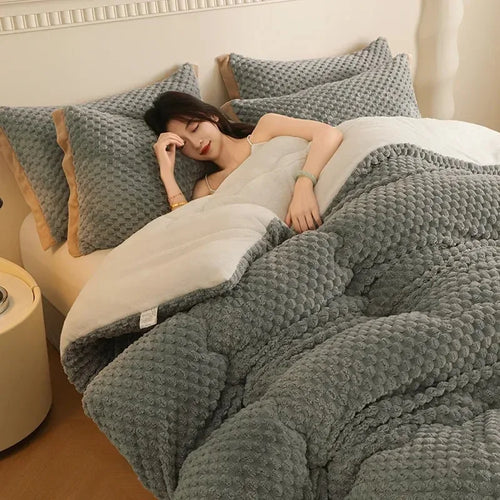
New Super Thickened Warm Winter Blankets
From: $409.90
Memory Foam Orthopedic Neck Pillow for Cervical Health
From: $36.00
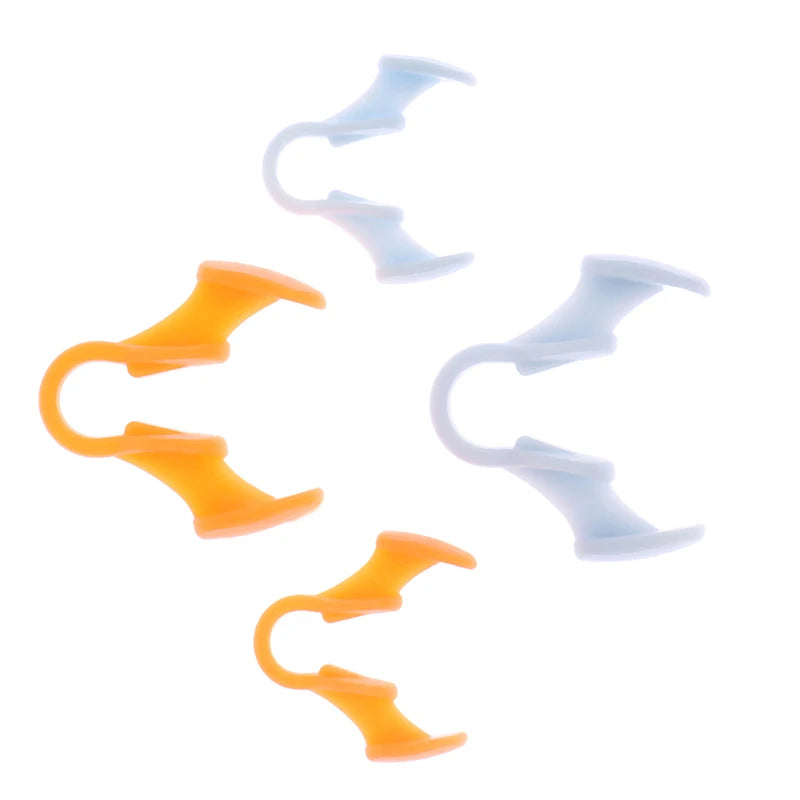
1 PC Silicone Anti-Snoring Corrector
From: $17.64

